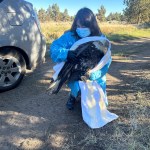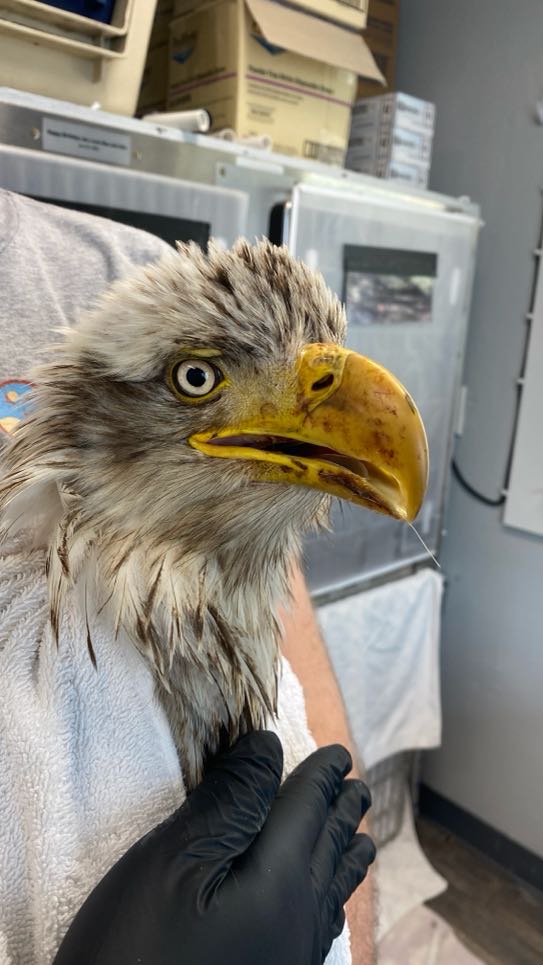Think Wild takes in bald eagle suffering from lead poisoning
Published 2:43 pm Tuesday, April 29, 2025



Think Wild, a wildlife hospital in Bend, has admitted a bald eagle suffering from severe lead toxicity.
The eagle, admitted to the clinic on April 17 after staff received a call from a local resident, has shown signs of a neurological disorder, including a drooping head, abnormal eye movement and leg paralysis.
The eagle was initially quarantined over concerns it may have avian flu, but blood tests revealed dangerously high levels of lead in its system. Severe lead levels can result in irreversible neurological damage, organ failure and death.
Trending
Think Wild staff have administered chelation therapy, a series of treatments that help bind and remove heavy metals in the bloodstream. Recent exams have shown some health improvements but the eagle is still not using its legs normally.
Pauline Hice, director of wildlife rehabilitation at Think Wild, says lead toxicity is not uncommon in Central Oregon. Since 2021, the clinic has treated over 20 birds of prey for lead poisoning. Only six of them have survived and were returned to the wild.
Lead poisoning impacts scavenging birds and is typically the result of an eagle eating an animal killed by hunters. Hunters can help prevent the condition by switching to non-lead alternatives for their ammunition.
Think Wild is now caring for two bald eagles. The first, found March 16 by a Powell Butte resident, is suffering from injuries caused by a suspected vehicle strike. Recovery of that eagle has been slow, Think Wild reports, and it remains under care of the clinic’s staff.













